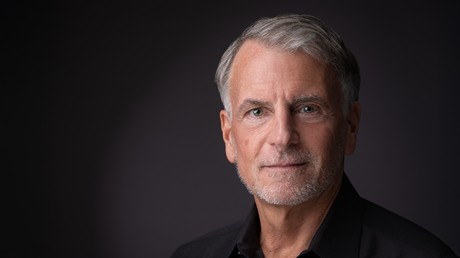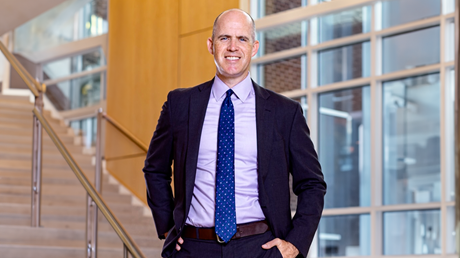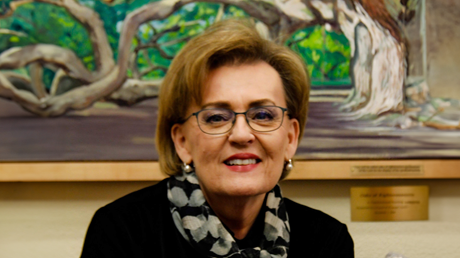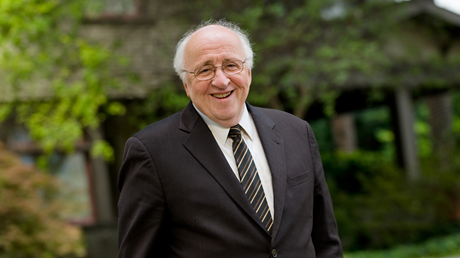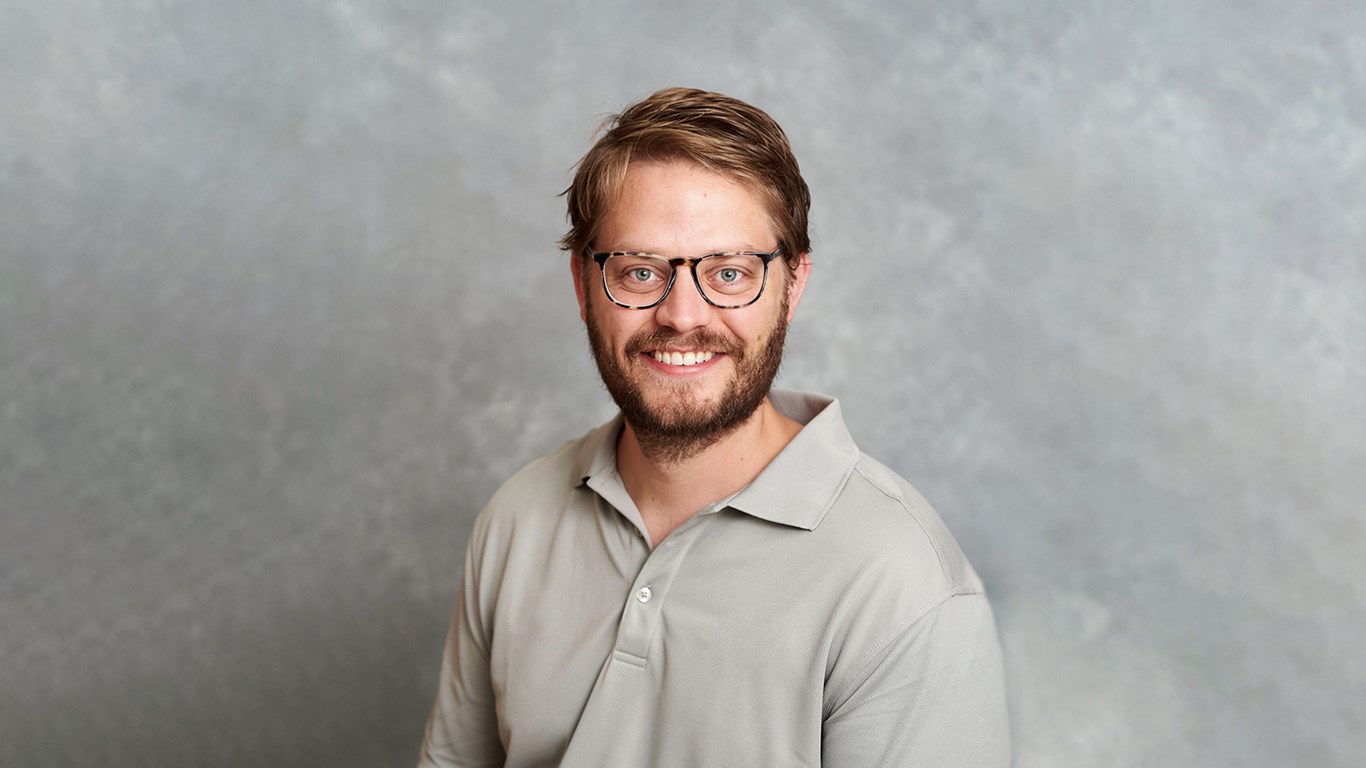
Will you help encourage and connect the church?
Give NowWill you help encourage and connect the church?
Give NowThis past April, at the Evangelical Press Association’s 2023 convention, Christianity Today won first place in the Personality Article category for Jordan K. Monson’s feature “The Linguist”.
In an interview with CT, Monson reflected on why this article was such a success, including why Katharine Barnwell’s story resonates with so many people, the importance of biblical interpretation in our world today, and how God continues to work and move among us.
What first got you interested in biblical interpretation?
I began reading the New Testament when I was 17. I grew up in a mainline church and had a decent foundation, but I’d never made it my own, so to speak. I began reading with mixed motivations—a healthy curiosity and desire to grow nearer to God, but also the hubris of a 17-year-old wanting to simply know more than his peers and “win” arguments (whatever that means).
I had read only a few chapters when arriving at Matthew 4, Jesus’ temptation in the desert. It blew me away. This was followed by The Sermon on the Mount. I couldn’t believe how good it was. I’d been hearing about the Bible my whole life, but reading those words myself knocked me on my back.
I thought, What good is it to read this and not live it? Not remember it? So I began memorizing whole sections of Scripture. There’s something about memorizing Scripture instead of just reading it that carved new pathways in my mind. I’ve never had such a strong experience of becoming the person I wanted to be with comparatively so little effort. The Holy Spirit plus a touch of neuroscience is probably the explanation.
Soon the hubris was mostly done away with, and I was on a mission to learn and know and follow God.
Do you remember when you first learned of Barnwell and her work?
Eleven years ago, I sat at a hotel table at my first Bible translation conference. I was hoping to get to know some of the movers and shakers, but I was the most junior person there and it was clear they weren’t interested. Suddenly, I sensed a shift in the room. The gaze, the collective energy of the room, shifted toward the door. I glanced around the room and saw nearly half the heads turn, whisper, and stay fixated.
I looked at the C-level leaders, and they all gazed there too. All I saw was an elderly woman in a light blue dress. I looked at my colleague next to me, and she anticipated my question. “Have you ever met the Michael Jordan of Bible translation?” she asked.
I’ll never forget the jarring charm of that comparison. Michael Jordan to an elderly British woman.
That was the first time I heard of her. Little did I know then that she’d revolutionized nearly every aspect of Bible translation. One of the greats was among us. It’s why everybody in the room hushed. As I learned more and more about her, I couldn’t believe somebody could be so revered and properly appreciated in their own field while almost nobody outside the Bible translation world knew of her influence.
I wrote the CT story to change that. One of the greats has lived and is still living among us. It’s not very often we get a “great.” And I’m honored to be her chronicler in the corner.
Your article did such a great job of describing Barnwell and the importance of her work. Is there anything you had to leave out that you wish you could tell readers?
I had four times the material that I was able to put into the article. CT is a magazine, after all, and not a book publisher. The great news is that B&H (part of Lifeway) commissioned me to write her full story, which will be coming out in May 2025.
What is it about Barnwell and her story that you believe resonates with so many people?
We were blown away by the reach and influence of this article. So many readers reported weeping, being reduced to snot and tears, even though it’s not the kind of story you’d expect to produce that emotion. It was the greatness of God through her that caused the emotion, not any kind of sadness.
The church in the West has been through an extremely hard decade. The kind of secularization we’re undergoing both broadly and even within the church is disenchanting everything and everybody. It’s as if we were saltwater creatures and the salt is slowly being stripped out of the water.
There’s hardly a single reader without family, friends, and close loved ones who’ve not only left the church but walked away from their belief in Christ. It’s exasperating. Add to that the nationalism, quasi-paganism, and other “-isms” that have so tarnished the witness of many of those who taught us the faith, and it has made for a very discouraging decade.
To then read Katy’s story—somebody who arguably has 100 times the fruit of Billy Graham but was virtually unknown until the CT cover—is touching. She shows that God is completing his Great Commission. And even if it seems difficult here, God is doing his work. And we get to be a part of it. And he is great. And he will see it through. Katy’s story shows this more clearly than any I know outside of Scripture.
If readers only took one thing away from your article, what would you hope it would be?
God is in control, and he is the one fulfilling his Great Commission. We’re simply privileged to get to be a part of it.
What makes CT a good outlet for this article?
There are very few institutions in the world that can claim what CT can. It is arguably the only publication in the English-speaking world where a 7,200-word article, 13 magazine pages, could be given to a story like Katy Barnwell’s and the story of Bible translation.
No other publication I can think of would dare go beyond 4,000 words, let alone have the reach CT does. If The Atlantic or The New Yorker won’t publish a certain story, there are a dozen others who may publish that work. If CT didn’t publish this, it wouldn’t be published anywhere.
Christianity Today has also been working to expand its global reach, including translating articles (in 18 languages now). What do you see as the next step for CT in this sphere?
Morgan Lee and the global team have done an incredible job with this, and I’m so glad the riches of CT’s ministry are able to be shared with many of the major languages of the world. I dare not suggest anything, because I bet she’s miles ahead of me.
I’ll just say this: In a world with so much frivolous content and bad takes, the beautiful orthodoxy of CT is a lifeline. When I was alone on the mission field and separated from the fruitful discussion of leading Christian thinking, CT was like an oasis in the desert for me. And I speak English, likely the leading language of Christian discussion in the world right now. I can’t imagine what believers sometimes feel like from other major languages.
I’d be thrilled to venture a decade or two into the future and find there that all the major languages of the world have a robust, beautifully orthodox presence from CT—written, edited, recorded, published, and produced by and for those who speak those languages.


